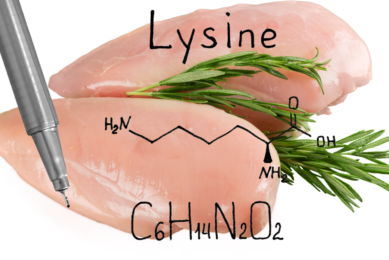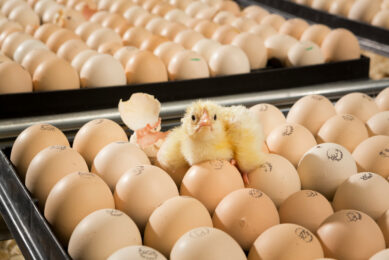Phytate degradation could be improved
Microbial phytase is gaining interest in poultry diets to improve phosphorous utilisation. The use of this feed enzyme will re-define nutrient requirements, particularly in relation to phosphorous and calcium, according to Peter Sella and Velmurugu Ravindrab in their review on the effects of microbial phytase in poultry nutrition.
The review is published in the May issue of Animal Feed Science and Technology. The
scientists respectively from Australia (University of Sydney) and New Zealand
(Massey University, Palmerston) therefore demand a more fundamental research
focus, which they think has been lacking in the past.
Effect in broilers
Based
on limited studies, it appears that exogenous phytase hydrolyses less than 0.35
of dietary phytate in broilers at the ileal level. If so, there is considerable
scope to enhance phytate degradation by the introduction of more effective
phytate-degrading enzymes or enzyme combinations, and facilitative nutritional
and management strategies.
Protein and energy utilisation
The researchers argue that
there is a distinct possibility that phytate negatively influences protein and
energy utilisation in poultry and, as these influences would be ameliorated by
phytase, there are substantial, practical implications. Nevertheless, there is
still no consensus as to
the extent that phytase enhances protein and energy utilisation. Responses
in amino acid digestibilities following phytase supplementation are variable
and the underlying mechanisms have not been completely understood.
The impact of phytase on protein and energy utilisation may be more positive
than generally realised, but this should become increasingly evident if greater
phytate degradation rates can be achieved.
Check out the article
archive for more on phytase…
Related websites:
Sydney University
Massey University
To receive the latest animal feed news subscribe
here!












